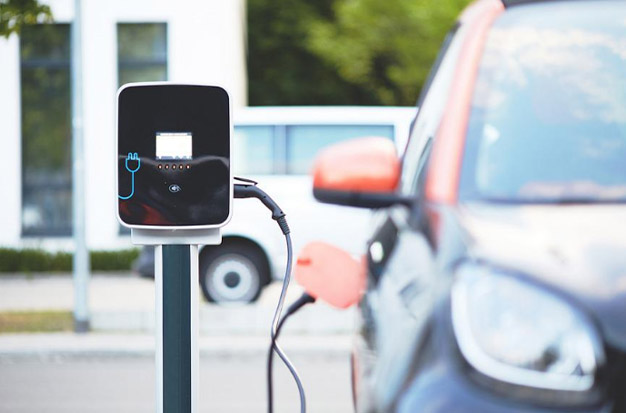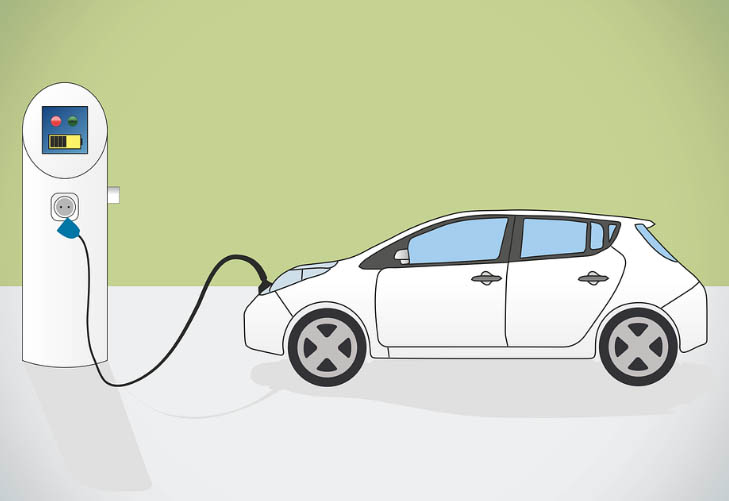
How Long Does it Take to Charge a Car Battery -What You Should Know?
The powerful surge of electricity required to start your car’s engine is provided by car batteries. Once that’s done, the alternator in your car begins to work while you drive to recharge the battery. One thing that a lot of people overlook is how long it takes to recharge a battery.
Charging a regular car battery with a typical charge amp of around 4-8 amperes will take about 10-24 hours to charge it fully. It will take between two and four hours to sufficiently charge your battery so that you can start the engine. Recharging your car battery slowly is the best way to extend its lifespan.
Nothing is worse than getting into your car on a chilly morning and discovering a dead battery. If you’ve jumpstarted it several times and the mechanic keeps insisting that there’s nothing wrong with it, it can be especially upsetting.
What Amps Can Your Battery Handle?
No, we’re not referring to cold-cranking amplifiers. We’re discussing the amount of time your battery can operate at one amp of power without being charged. The majority of automotive batteries have a 48 amp rating.
Even though your car doesn’t use amps per hour, this method is still the best one for estimating how long it will take to charge your battery. This is so that manufacturers can produce battery chargers uniformly. It makes determining the appropriate charging time for a car battery simple.
It will take 48 hours if your battery is completely dead (0 amps) and you’re using a 1-amp charger. However, it will require 24 hours if you’re using a 2-amp charger. One amp will be restored in the battery every hour for every amp that the charger’s manufacturer rates it for.
It is important to remember that the battery also has an impact on this. You’ll need to leave the battery on the charger for longer if it has a bad cell or can’t hold a charge because of calcification if you want to have any chance of saving it.
How Long Does It Take To Charge A Dead Car Battery
A car battery can typically be fully charged in 2 to 4 hours using a 20 Amp battery charger and in 12 to 24 hours using a 4 Amp charger. The car battery and the charger’s power output have a big impact on how long it takes to charge.
Around 4 amps is the most typical rate for car battery chargers. A 52 Ah battery would require about 10 hours to fully charge from dead to fully charged, but you could probably start your car in that time.
You must first check the ampere output of your car battery charger. Your car’s battery charges more quickly at high amps. For long-term maintenance charging of your battery, a low ampere is preferable.
Additionally, you need to consider the battery’s type and size for your car. A battery of between 40 and 80 Ah is typically used in a mid-sized car. The type of car battery must also be considered. In comparison to a typical wet battery, an AGM/GEL battery can charge up slightly more quicker.
At What Rate Should A Car Battery Be Charged?
What you want to acquire should determine how quickly your car battery charges. Fast charging can shorten the life of your battery and cause damage. The best way to extend the battery’s life is to charge it slowly and at low amps.
Typically, a standard car battery charger outputs 4 to 15 amps. 2-4 ampere is typical for maintenance charging, and it will take around 24 hours to fully charge a dead battery at this load. Ensure that the charging rate is set according to your needs by checking the settings on your car battery charger.
I advise charging your battery at a rate of 8 to 15 amperes to charge your car battery quickly and safely. In the unlikely event that you are unlucky, charging your battery at a rate greater than 15 amps may result in damage and reduce battery life.

What Are The Various Battery Charger Types?
Therefore, what should you do if you don’t drive your car very often? Picking up a battery charger is your best option. Your battery will remain healthy and charged with the help of a battery charger so that it is always ready to use. You should stick to two fundamental guidelines when looking for a battery charger. The charger you choose must be compatible with the chemistry of your battery, according to rule number one. So what do we mean when we say “chemistry”? You must locate a lead acid charger for a lead-acid battery. A charger that is AGM compatible is required if your car has an AGM battery. It is possible to charge batteries with various chemistries using the numerous settings on modern battery chargers.
The second rule is that the output voltage of your battery and the voltage of your charger must be the same. Therefore, a 12-volt charger is required for a 12-volt car battery. A 24-volt charger should be purchased if your truck uses a 24-volt battery. You must adhere to these two guidelines. The battery in your vehicle can sustain long-term damage if it is charged using the incorrect charger.
How Dead Is Your Battery Exactly?
There are various types of dead batteries. Your battery will require more time on the charger than one with 10 volts if you test it and find that it has 2 volts.
While checking your volts is the simplest thing to do and effectively tells you if the battery needs to spend more time on a charger, it doesn’t always tell you how many amps the battery has left.
Don’t rely solely on your dash’s battery light. Depending on how much the battery has died, it may or may not illuminate.
When A Car Is Idling, Do The Batteries Charge?
Your battery will still recharge in an idle car, but much more slowly than if you were actually driving. This is because contemporary automobiles have numerous additional electronics that consume power. Which system supplies the additional systems? Can you guess which component it is? You are correct; it is your alternator. It will take a lot longer for your battery to recharge this way if your car is just idle because it isn’t producing many RPMs. We’re talking hours here. Your best option is to simply go for a drive rather than leaving your car idle in your driveway.
How Much Time Does A Car Battery Last When Not Being Driven?
In a little under two months, an idle battery can go from fully charged to completely dead. If your battery is over three years old or wasn’t fully charged the last time you drove it, it will degrade even more quickly. A factor that is bad for your battery is making numerous short drives in a row. There is nothing wrong with running a ton of errands, but your battery will get pretty low if you keep starting and stopping your car with only brief periods of driving in between. Give your alternator the time it needs to fully recharge your battery by going for at least one 30-minute drive on the highway per week.
Conclusion
The electrical system in a car is a challenging device. Hopefully, you now have a better understanding of when and how a car battery is charged. One element of a convoluted circuit is the battery. The vehicle’s actual power source is the car alternator; however, if that fails, it’s a completely different situation that we will discuss later. Watch your battery, give it a test drive, and be aware of its age. Travel safely and keep yourself safe.
Read the following post about spare parts replacement if you are interested!
- How to Change Your Cabin Air Filter – Everything You Need to Know
- Water Pump Replacement Cost – Price Comparison 2022
- How To Remove Rain X Wiper Blades
- How Much Does It Cost to Replace An Alternator?
- How to Prevent and Remove Rust on Your Car
- How to Remove a Stuck Door Hinge Pin?
- How To Check And Replace a Coolant Hose
- How Much Does a Fuel Injector Replacement Cost?
- How to Change an Audi Key Battery
- How to Replace An Engine Splash Shield


Average Rating